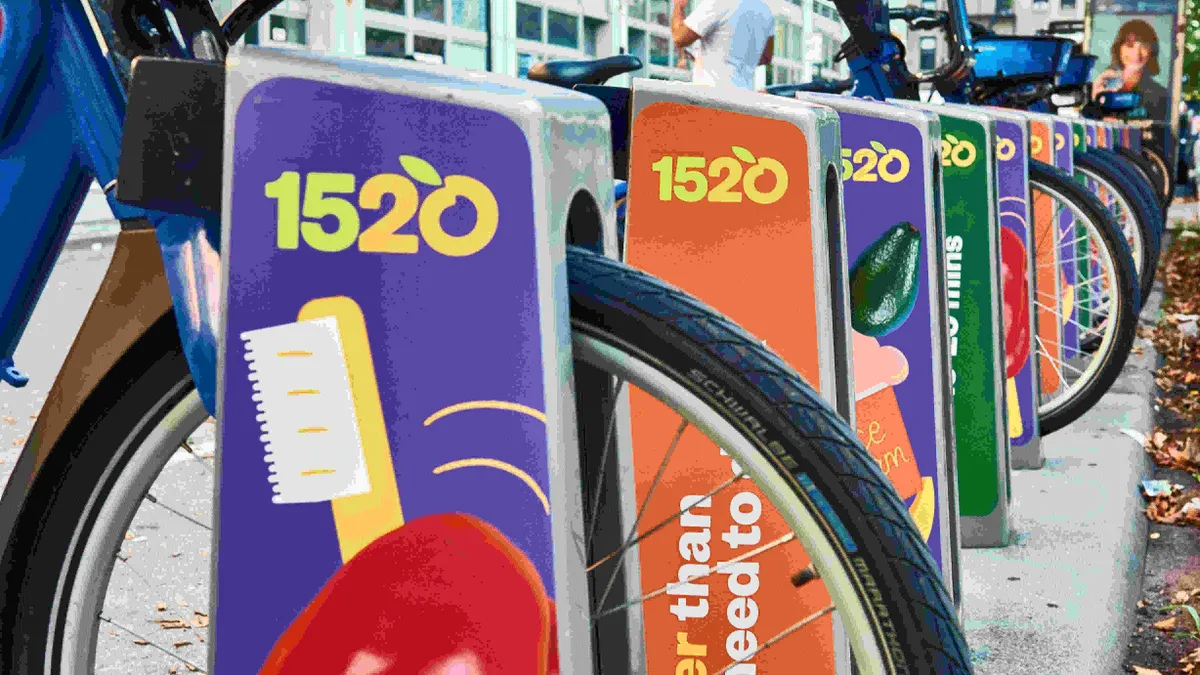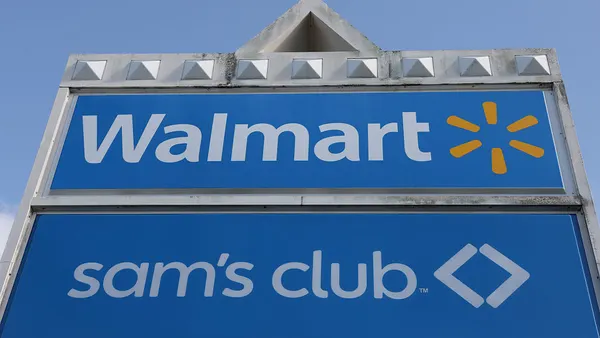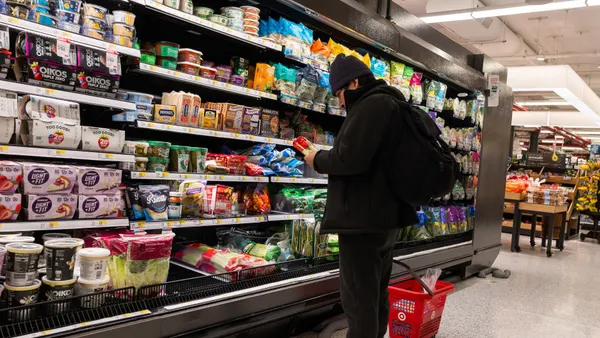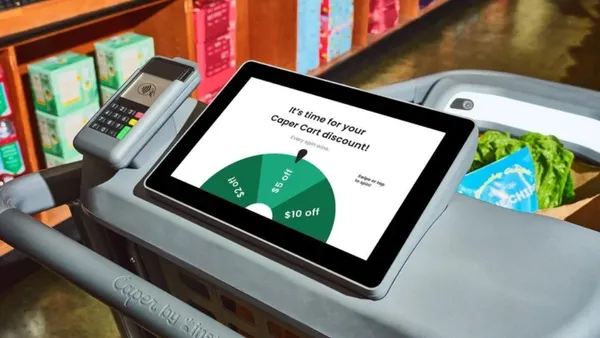UPDATE: Dec. 14, 2021: Underscoring the competitive stakes in the budding ultrafast delivery wars, instant delivery startup 1520 has now become an “advertising medium” for rival ultrafast firm Getir, which just brought its 10-minute service to New York City and Chicago, Jordan Barry, a spokesperson for Getir, wrote in an email.
1520’s app now tells shoppers to “Download Getir now!” and use a code to get $30 off of their first order. Earlier this month, Business Insider reported that 1520, which had been serving customers in New York City and Chicago, closed after running out of funding.
Getir and its group companies are not directly affiliated with 1520 and have not acquired 1520’s business, Barry said. 1520 has not responded to a media inquiry.
Dive Brief:
- Instant grocery delivery startup 1520 has ceased operations after exhausting its funding, according to a report by Business Insider.
- The company launched in January with a promise to deliver grocery orders in 20 minutes or less and has been serving customers in New York City and Chicago.
- 1520 has faced intense competition from a range of rivals in its quest to build momentum in the ultrafast delivery space.
Dive Insight:
Like other companies hoping to find a path to success by stoking customer demand for groceries on the double, 1520 has sought to deliver on the proposition that racing products to people's doors could lead to a payday for investors.
The question now is whether investors are beginning to lose their appetite for the hefty risks that come with putting capital into the fledgling instant delivery industry.
After getting off the ground with bootstrapping from its founders, 1520 brought in $7.8 million in seed capital in April and has expanded from a single dark store on Manhattan's Upper East Side to other parts of the city. Convinced that its model was working, the company set up shop in Chicago in September.
Based in New York, 1520 has tried to stand out by executing what co-founder Maria Daniltceva described in an August interview with Grocery Dive as a "super-efficient" approach to procuring, storing and delivering groceries that benefited from the fact that the company had lower overhead costs than traditional grocery stores. The company assembled a team of bicycle couriers to transport orders to customers.
The company quickly developed a network of neighborhood-based dark stores each between 1,500 and 2,000 square feet, which Daniltceva said gave it the ability to run a sustainable delivery business — even without imposing a minimum order requirement or charging a delivery fee.
"For now, we don't have the level of scale, brand recognition and negotiation power that established retail chains do, but even with the current gross margins, the economics work," Daniltceva said in the interview.
Word that 1520 has decided to abandon its business suggests the company's ambitions may have exceeded its ability to stay afloat as it looked to build a firm foundation, however.
Representatives for 1520 did not respond to an inquiry from Grocery Dive about the company's status.
As of Friday, 1520's website remains in operation, but a message on the home screen on its app indicates that the company is "busy restocking the shelves for couple of days. Stay tuned!"
Other companies in the instant-delivery space have brought in significantly more money from investors than 1520, a deficit that may have proved insurmountable.
On Thursday, Jokr, which counts New York City among 14 cities where it provides high-speed grocery delivery, said it raised $260 million in Series B funding on top of the $170 million it brought in during the summer. Jokr has just started service in Boston, its second U.S. market.
Buyk, another instant grocery delivery provider serving New York City, has brought in $46 million from investors. Meanwhile, Gopuff, which has amassed more than $2 billion from investors, began offering 30-minute delivery of instant needs items including groceries to customers in New York City in October.
Other instant delivery companies operating in New York City include Fridge No More and Gorillas.
According to Business Insider, 1520 decided it could not continue despite being able to turn a profit on a per-order basis, in part because of overwhelming costs associated with attracting customers. Jokr had considered purchasing 1520, but opted not to pursue a deal, Business Insider reported.














